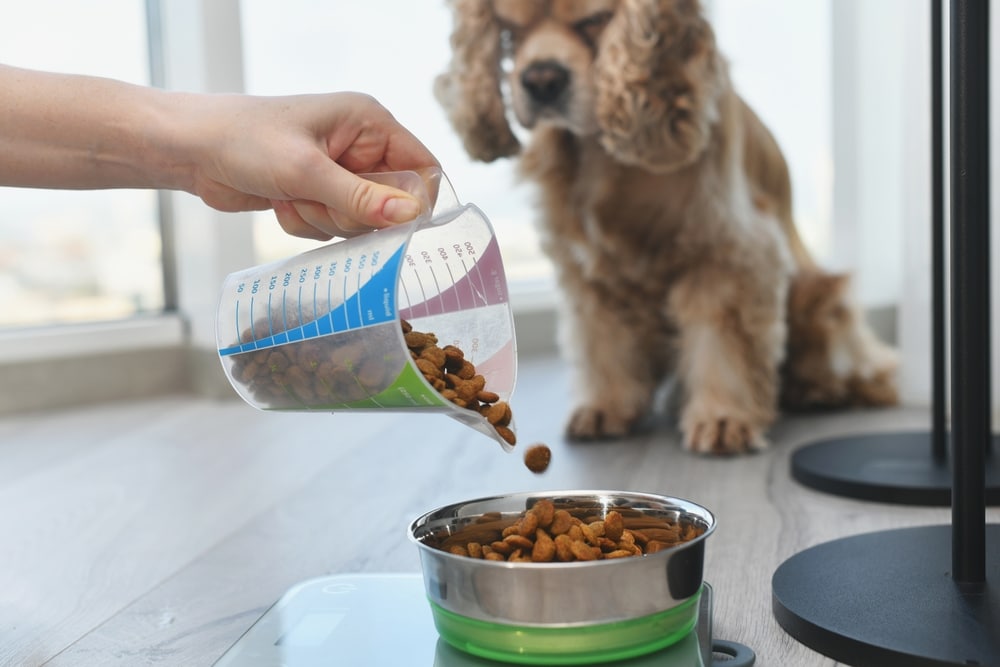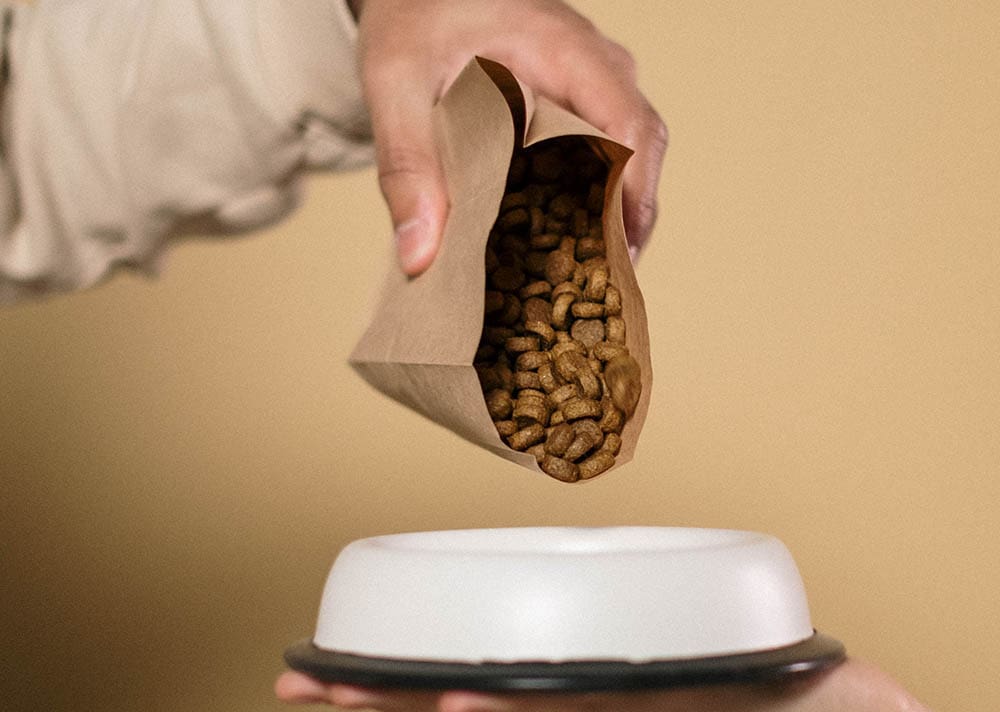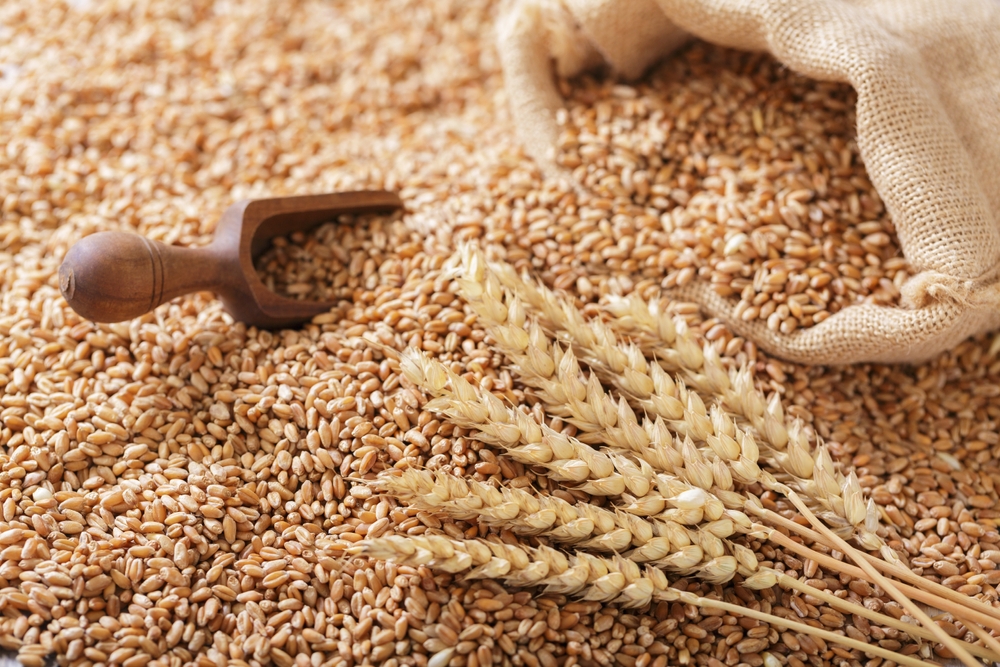There has been controversy surrounding dry food in the dog food world for years now. Proponents of raw food and fresh food diets argue that dry dog food is unhealthy due to being highly processed, but others have a more balanced view. Basically, there are pros and cons to both wet and dry food diets.
Dry food isn’t bad for dogs as long as they are eating the right amount of food for their bodies and you’re choosing a dog food brand that uses high-quality ingredients. In this post, we explore this topic further.
 Pros of Dry Food
Pros of Dry Food
Dry food can be beneficial to dogs in several ways. One of the most prominent benefits is dental health. Dry food has that extra crunch factor that helps reduce plaque and tartar build-up and contributes to healthier gums.
That said, not every dry food or treat is beneficial in this manner. If you’d like to learn more, check out the Veterinary Oral Health Council’s list of accepted products, those that it has deemed to be beneficial for a dog’s dental health.
Dry food also has the bonus of convenience. Wet food can’t be safely left out for too long, whereas dry food can be left out for long periods and is easy to store—including in feeders and toys—and keep fresh.
High-quality dry foods tend to come with feeding guidelines too, which can be useful in determining exactly how much your dog should be eating.

Cons of Dry Food
One of the drawbacks of dry food is that dogs typically find it less tasty than wet food. If your dog is on a weight-loss plan, this isn’t such a bad thing, but for dogs that need to gain weight, it can make things more difficult.
It’s also harder to offer variety with only dry food. You can purchase wet food in multiple flavors, but you’ll typically only buy one bag of dry food in one flavor. Additionally, wet food contains more moisture, which helps keep your dog hydrated.
Dry food tends to have higher fat content than wet food, so it’s easier for your dog to become overweight if you’re not careful with portion control. Obesity is one of the most common health issues encountered by dogs, and the condition can easily spiral into other conditions, so it’s hugely important to be conscientious about this issue.
Wet food is sometimes recommended for dogs with weight issues instead of dry food, as it gives dogs that “full” feeling faster and has a lower fat content.
Should I Feed Dry Food to My Dog?
Feeding both wet and dry food simultaneously is a great way to offer your dog a varied and balanced diet and ensure that they reap the benefits of both. You can either put the wet and dry food in the same bowl or feed them separately—whichever works best for you and your dog! Do note that if you avoid feeding dry food for a period, then suddenly switch to wet food and vice versa, this can cause stomach upset. Be sure to make any food changes gradually.
If you go this route, always make sure your dog is still getting their recommended daily calorie intake, and be mindful of over- and underfeeding. It may be beneficial to stick with the same protein source and/or brand of wet and dry food and avoid mixing brands.
- Determine proper dog food portions and ideal daily intake with our helpful calorie calculator here.
If you’re uncertain about your dog needing a dry food diet, consult a veterinarian for guidance.
If you need to speak with a vet but can’t get to one, head over to PangoVet. It’s an online service where you can talk to a vet online and get the personalized advice you need for your pet — all at an affordable price!
 Final Thoughts
Final Thoughts
Dry food isn’t necessarily bad for dogs, as long as you aren’t underfeeding or overfeeding your pet and are sticking to high-quality, trusted brands. There are both pros and cons to dry food, and this is also the case with wet food. As many experts note, a mix of dry and wet food seems to be a good option because it means your dog can benefit from both types.
Above all, every dog is an individual and each will have different needs. If you’re unsure which diet would be best for your dog, we recommend talking over your concerns with an animal nutritionist or vet. These are your go-to people for making sure your dog is eating a diet that best suits their individual needs.
Featured Image Credit: cottonbro, Pexels


 Pros of Dry Food
Pros of Dry Food







